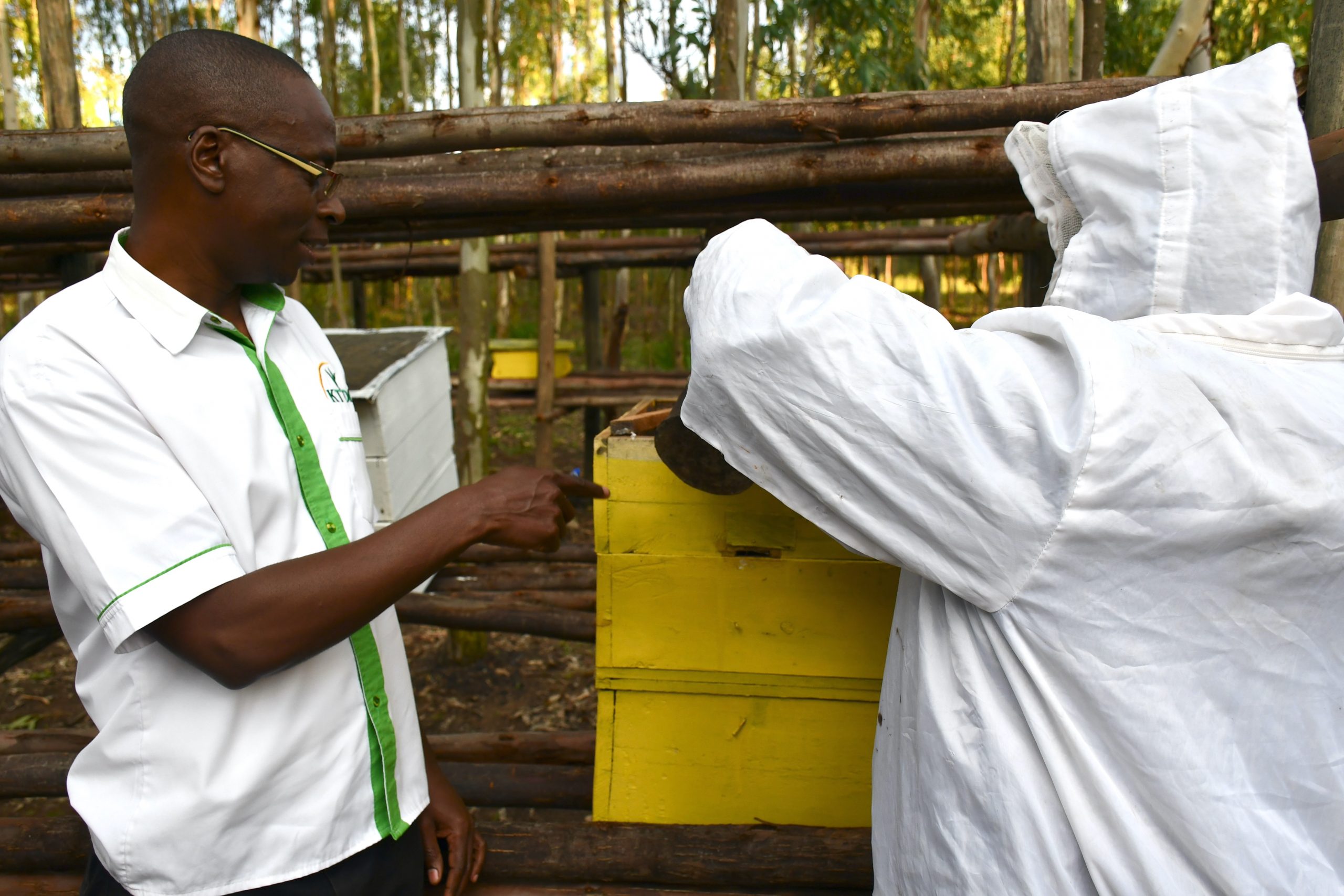Five tea factories managed by the Kenya Tea Development Agency (KTDA) in Meru County have embarked on a beekeeping venture as part of their long-term revenue diversification strategy and environmental sustainability program.
The factories, Weru, Imenti, Githongo, Kionyo and Kinoro, have set up 200 langstroth beehives apiary at their Mwigiki woodfuel farm which is located along the Timau-Isiolo highway.
Since its inception the project has realized sales of more than half a million Kenya shillings. In order to achieve the full potential of the farm, plans are underway to increase the hives to 500 in the near future.
“On average each hive produces 60 kilograms of honey per year; the planned 500 hives will have the capability to produce 30,000kgs of honey in one year. If you convert that to sales, it will translate to about Ksh20 million revenue for the shareholders.
Speaking on the side-lines of a site visit to the farm, KTDA Forest Officer, George Oselu, said the project’s main objective is to entrench sustainability and conservation; while earning farmers’ additional revenue.
“The whole idea behind this project is sustainability with the focus being environmental conservation and revenue generation. The honey we get here is unique because the bees have plenty of acreage to gather nectar and pollen, especially from the eucalyptus trees present within the farm; making it among the best honey available,” he said.
“We want to replicate this project to all our wood fuel farms across the country; with the long-term objective being to encourage all our farmers, even at the household level, to have at least one or two beehives because we have seen they are easy to manage,” he added.
Commenting on the project, Stephen Macharia, Regional Operations Manager, Region Four, said plans are in place to upscale the project to enhance revenues realized from it in the coming future.
“The honey we harvest from this farm is sold through the regional office and the demand for it is overwhelming because of it’s quality. The project has a potential of bringing revenue to the shareholder and plans are currently in place to have another two sites like this.
As the apiary is located within the tea factories wood fuel farm, a strict tree-felling plan is followed to ensure that the bees’ ecosystem is not disturbed; ensuring that there is always enough forage for them.
“The benefit of this farm to those five factories has led to substantial savings in terms of thermal energy cost. The wood harvested from this farm has high calorific value hence saving the factories between 20 and 25 percent in energy costs, translating to about Ksh30 million in direct savings to these factories over the last one and a half years. These savings are passed on to the farmer” said Stephen.
KTDA-managed factories across the country have around 21,000 acres of land for wood fuel production with a target of acquiring and developing 40,000 acres in total in their journey for fuel wood self-sufficiency.













Leave a comment